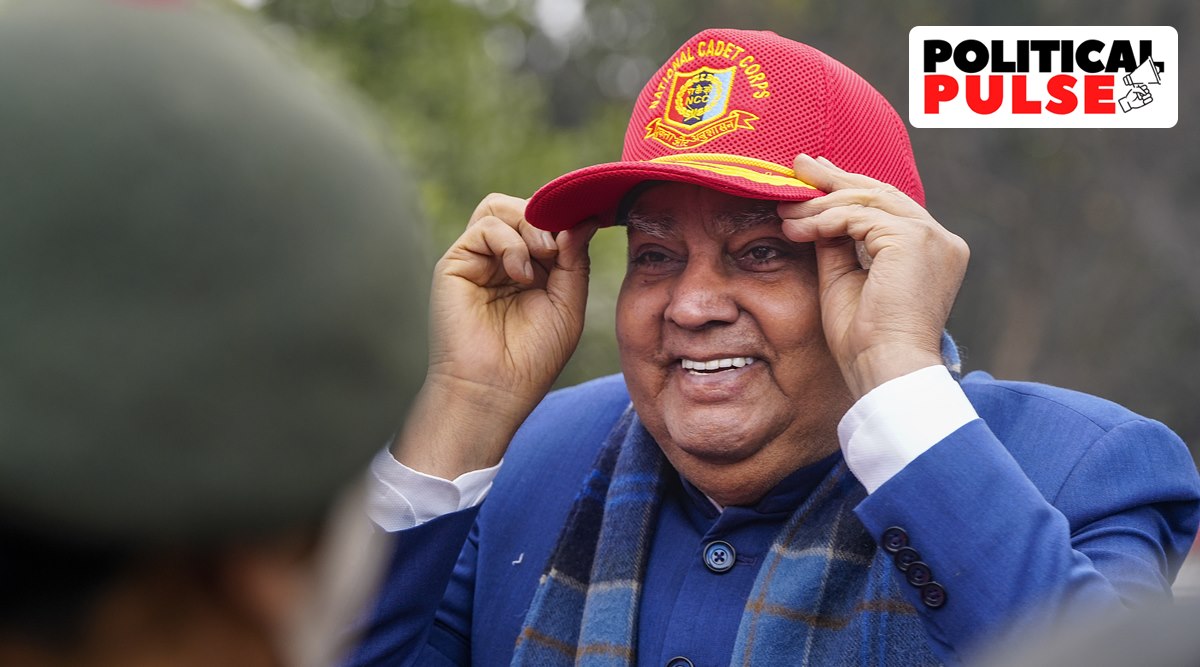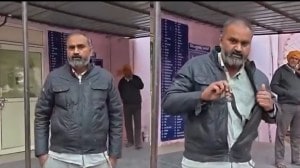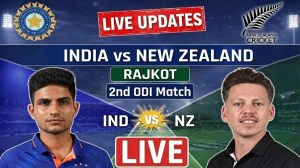Though Dhankhar spoke on his own, the leaders added, given that the Narendra Modi government is not shying away from taking on the Judiciary either, their interests “align”. Union Law Minister Kiren Rijiju earlier invited the Supreme Court’s ire for describing the Collegium system of judicial appointments as “opaque” and “alien”.

However, party leaders were categorical, neither the BJP nor the RSS has “any agenda to change the basic character of the Indian Constitution”. Many pointed out Modi’s own praise for the statute on more than one occasion, including calling it the “only holy book” for his government.
A senior party leader said judicial appointments has been one of the issues Dhankhar, a lawyer by training, has been interested in since the time he was the national convenor of the law and legal department of the BJP in 2016.
“There are two ways of looking at it. No one is against the idea of judicial independence, but there is a deep sense of anger over judicial overreach among legislators and lawmakers as well as in the party,” a BJP MP, well-versed in legal matters, said, while admitting that there could be a debate over “how the issue is to be articulated, when and at what forum”.
The MP added that a large section of the people also “question whether the current Judiciary has the moral authority… to give lectures to the Legislature”.
Dhankar was handpicked by the BJP’s top leadership as its vice-presidential nominee after his term as the Governor of West Bengal, which was marked by constant tussles with the Mamata Banerjee-led Trinamool Congress government.
Story continues below this ad
Sources said he is well-liked within the BJP leadership and the RSS as well, despite not being “originally an RSS volunteer”. “He has always maintained warm and close ties with several Hindu organisations, thereby drawing a lot of respect from the BJP too,” a BJP national office-bearer said.
The BJP leader admitted that given how Governors across Opposition-ruled states have been taking on elected governments – R N Ravi in Tamil Nadu being the latest example; even as Lt Governor Vinai Saxena is in near-constant battle in Delhi, as is Governor Arif Mohd Khan in Kerala – critics of the BJP would assume that Dhankhar is also using his Constitutional position to do the Centre’s bidding.
At least two senior BJP leaders expressed their appreciation for Dhankhar’s comments specifically regarding the Kesavananda Bharati case, saying it was time to review “the judgments made during the powerful years of the Congress”. This is despite the fact that in the past, BJP veterans have often lauded the order, passed in the years leading up to the Emergency, and seen as directed against the Indira Gandhi government’s majoritarian decisions.
Giving the inaugural address at the 83rd All-India Presiding Officers’ Conference in Jaipur Wednesday, Dhankhar said: “In a democratic society, the basic of any basic structure is supremacy of the people, sovereignty of the people, sovereignty of Parliament. Executive thrives on the sovereignty of Parliament… The ultimate power is with the Legislature… In 1973, in the Kesavananda Bharati case, the Supreme Court gave the idea of basic structure saying that Parliament can amend the Constitution, but not its basic structure. With due respect to the Judiciary, I cannot subscribe to this,” Dhankhar added.
Story continues below this ad
He also said that striking down of the NJAC Act by the Supreme Court was “unparalleled in the democratic history of the world”.
While the UPA first envisaged a National Judicial Appointments Commission (NJAC) that gave the government a role in the selection of judges, including the Chief Justice, it was the Modi-led BJP government that introduced the NJAC Act, 2014, as one of its first steps. But in October 2015, the Supreme Court struck the Act down, reclaiming sole right over judicial appointments.
While the government has not made another bid since to bring in the NJAC in some form, it has made its disagreement with the present system evident several times.
The Judiciary too has expressed its unhappiness frequently at the government sitting over its recommendations or clearing the same selectively.
Story continues below this ad
In one of its recent observations, the Supreme Court expressed “extreme concern” over 10 recommendations for transfer of High Court judges pending with the government, and said “keeping it pending sends a very wrong signal that other factors are coming into play”.

































